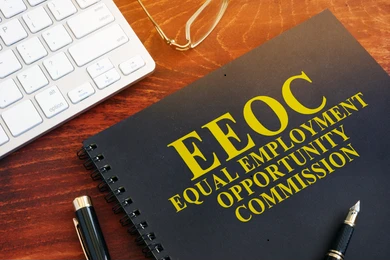Last month, on the one-year anniversary of the landmark decision in Bostock v. Clayton County, the Equal Employment Opportunity Commission (EEOC) issued guidance on the matters of sexual orientation and gender identity (SOGI). Since that guidance was released, 21 state attorneys general have joined together and sent a letter to the Biden administration opposing the EEOC guidance. This article will discuss the specifics of the EEOC guidance, as well as the explanation for push back against it.
Bostock v. Clayton County
The Bostock case addressed the meaning of the “because of sex” language that is found in Title VII of the Civil Rights Act, which prevents discrimination on the basis of several protected classes. The Court held that “because of sex” extends to sexual orientation and transgender status. However, the Court stated that it would not take a stance on the use of “private spaces,” and left many wondering if employers are able to segregate restrooms by gender or sex without violating Title VII. The Chair of the EEOC, Charlotte A. Burrows, clarified this question on June 15. Since the guidance was issued only by the chair and not the EEOC as a whole, it is currently being considered non-binding guidance. It is expected to become binding next year with the nomination of a new member, which would tilt the ideological majority.
Segregation of Restrooms and Attire Requirements
A main part of the guidance directed employers that they must allow their employees to use the bathroom that corresponds to their gender identity. Employers must also allow employees to dress in accordance with their gender identity and cannot require employees to dress a certain way based on their sex assigned at birth. The discomfort of other co-worked may not be used as justification for employers to enforce discriminatory policies.
Pronoun, Names, and Appearances
Pronoun and name usage were also key pieces of the guidance. The EEOC stated that use of pronouns or names that are not in line with how the employees identifies may be grounds for harassment claims. However, accidental usage of incorrect pronouns are names do not qualify as Title VII violations. Intentional and repeated misuse of preferred pronouns and names will contribute to claims of a hostile work environment. Employers are also prohibited from discriminating against employees they believe act or appear in a way that does not conform to gender stereotypes.
SOGI Webpage
The EEOC also released a new webpage that is meant to provide information to both employers and employees regarding their rights and responsibilities as they relate to sexual orientation and gender identity at work. Some of the information provided includes general information on SOGI protections, the statute of limitations for filing discrimination claims, and links to other websites with additional information on approaching SOGI related issues at work.
The SOGI website has made information available for individuals discriminated against based on their sexual orientation and gender identity and has compiled this information into one convenient location on the EEOC website. This information can also serve to educate employers on their obligations under Title VII and the new guidance.
National Response
The new guidance does not address what religious employers with sincerely held beliefs about sexual orientation and gender identity should do. However, it stated that courts and the EEOC review religious defenses to discrimination claims on a case by case basis.
On July 7, 21 state attorneys general sent a letter to President Biden claiming that this expansion of LGBTQ rights threatens employers to impose unlawful regulatory guidance. The attorneys general also claimed that the guidance does not address exceptions for religious organizations or religious institution rights under the First Amendment. They went on to say that the Bostock decision cannot overrule the guarantee of religious liberty.
The letter also addressed the prohibition of intentional pronoun misuse and stated that it is a restriction on the freedom of speech and that this policy is overreaching as it was not addressed in Bostock. The group of attorneys general intend to work with the Biden administration to resolve these concerns.
Employer Action
Under the EEOC’s SOGI guidance, employers need to consider reviewing their current policies in order to ensure compliance. For example, employers may want to modify their yearly harassment training to include a section on sexual orientation and gender identity. This way employees will become aware that discrimination or harassment based on these classes is protected under Title VII in the same way that sex is.
Employers may also want to review their employee handbooks for a variety of reasons. First, they may want to consider the usage of gender-neutral language as opposed to “he” and “she.” Dress code sections should also be re-evaluated to be modified as a gender-neutral policy. Another handbook consideration is the mention of sexual orientation and gender identity in the discrimination and harassment sections also to increase awareness of these protected classes.
Employment forms should also be revised with gender neutral language. Sections that require employees to identify their gender should be expanded and provide a write-in option for employees to self-identify. However, employers should be aware that some documents may require an employee’s legal name and gender and therefore names and genders must be legally changed prior to being placed on official documentation.
Conclusion
The EEOC’s guidance sheds light on additional protections for those discriminated against on the basis of sexual orientation or gender identity. Although there is current push back in many states, employers would be advised to review current policies and procedures in order to make them more inclusive of this guidance.

